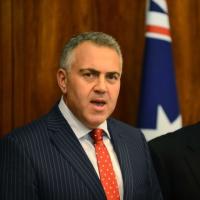
Federal government preparing the ground for their second budget
The main focus of the federal government at the moment is preparing the ground for their second budget. While their first budget caused them some political problems, they were able to push through tens of billions of dollars of cuts and austerity measures.
It was ordinary people who were forced to shoulder the burden of these measures while big business was offered benefits. This provoked a backlash and in an attempt to assuage voters, and their own back bench, the government is treading much more carefully this time around.
Despite a whole series of deep cuts being carried through, big business still complains that unless more is done their low company tax rates and high levels of corporate welfare will be in jeopardy. They complain that the system that was set up to favour their profit making needs no longer works well enough.
Speaking on their behalf, The Australian recently commented that “our social, political and economic compact is broken”. The main prop of this ‘compact’ was a two-decade long economic boom. Regardless of which major party dominated the parliament the economic conditions underwrote a period of relative stability for Australian capitalism.
The key features of the boom were a growing mining sector, reasonably high employment and cheap credit. The problem is that on all of these fronts things are now coming unstuck. Investment in the mining sector has now peaked and commodity prices have dropped significantly. This has dramatically affected government revenue.
Pressure is also building up on the employment front with wages flat and the latest figures showing that there are around 800,000 people chasing a mere 150,000 available jobs. Official unemployment is at a 12 year high of 6.4%.
At the same time personal debt levels are at all time highs. Household debt is currently equal to 130% of GDP! This exposes the economy to major risks in the event of another financial crisis. High debt levels also mean that people are more likely to pay off their loans rather than spend. This reduces the prospect of the economy experiencing a consumer-led upswing.
With less revenue being raised, less people employed and less scope to put the problems off to the future via credit, things are beginning to come to a head. Big business is demanding that the government urgently reduce spending.
While the government acted in a fairly crude way in their first budget this time around they seem intent on hiding their true intentions behind Orwellian language like the ‘families package’. Regardless of the descriptions their measures are aimed at reducing spending on ordinary people in order to protect corporate subsidies and low tax rates for the rich.
In effect big business wants the public to pay the cost of keeping their private profits high. Despite it being their profit-driven system that created the economic crisis they want ordinary people – those who do not make profits – to foot the bill.
Even though the ‘compact’ is beginning to break down, we still have a situation in Australia where no major political force even dares to talk about taking measures against big business in order to maintain conditions for the majority of the population. Raising taxes on company profits and slashing corporate welfare is not even part of the mainstream debate.
This is because both of the major parties act as political representatives of big business. There is no major force in Australian politics that stands specifically for the interests of ordinary workers, students and the unemployed. This needs to change.
Such a force will not arise overnight, it will have to be consciously built, but the best way to start that process is by waging struggles against cuts, austerity measures and big business profiteering. Linking these struggles to the need for a political alternative to the major parties is the best way to create the conditions whereby we force the capitalists to pay for the capitalist crisis.

Be the first to comment